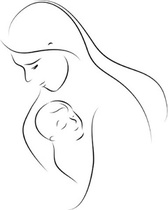|
Pregnancy
Women often experience mild changes in their moods and feelings during pregnancy, and these changes, which may include increased fatigue, irritability, and worry, are natural. For 15-21% of pregnant women, however, these symptoms become severe enough to require treatment from a mental health provider. We provide expert care to pregnant women struggling with the following symptoms. Symptoms of Depression and Anxiety During Pregnancy:
IF YOU BELIEVE THAT YOU MAY HURT YOURSELF, SEEK HELP IMMEDIATELY. IF YOUR DOCTOR IS NOT AVAILABLE, PLEASE CALL 911 OR GO TO THE NEAREST EMERGENCY ROOM |
Postpartum Depression and Anxiety...
We provide expert and caring support to women and their partners who are experiencing postpartum mood or anxiety disorders (PMAD) such as postpartum depression. Read below to determine whether you or your loved one may be in need of professional evaluation for postpartum mood or anxiety disorders. Postpartum depression and anxiety can appear up to 12 months after childbirth or pregnancy loss. Every woman is different but warning signs may include:
IF YOU BELIEVE THAT YOU MAY HURT YOURSELF OR YOUR BABY, SEEK HELP IMMEDIATELY. IF YOUR DOCTOR IS NOT AVAILABLE, PLEASE CALL 911 OR GO TO THE NEAREST EMERGENCY ROOM |

“Baby Blues” vs Postpartum Depression
Up to 80% of women experience the “baby blues” in the two to three weeks after giving birth. Bringing a baby home is a joyful experience, but it is also extremely challenging and jarring. It is normal to feel moody, weepy, overwhelmed, somewhat anxious, and even trapped. Questioning whether you made the right decision in having a baby is a normal, though usually unwelcome, experience.
Abrupt changes in hormones, the physical stress of childbirth, exhaustion, and the incredible demands of having a newborn are to blame for the blues.
Women with baby blues are still able to care for themselves and their babies. Baby blues resolve on their own by two to three weeks postpartum.
Symptoms listed above that are particularly severe or troublesome, or that interfere with your ability to care for your baby may be symptoms of PPD. Symptoms that last longer than two to three weeks may indicate PPD. In either case, it is important to seek professional support if you feel that your or your loved one’s symptoms go beyond the normal experience of “baby blues.”
Up to 80% of women experience the “baby blues” in the two to three weeks after giving birth. Bringing a baby home is a joyful experience, but it is also extremely challenging and jarring. It is normal to feel moody, weepy, overwhelmed, somewhat anxious, and even trapped. Questioning whether you made the right decision in having a baby is a normal, though usually unwelcome, experience.
Abrupt changes in hormones, the physical stress of childbirth, exhaustion, and the incredible demands of having a newborn are to blame for the blues.
Women with baby blues are still able to care for themselves and their babies. Baby blues resolve on their own by two to three weeks postpartum.
Symptoms listed above that are particularly severe or troublesome, or that interfere with your ability to care for your baby may be symptoms of PPD. Symptoms that last longer than two to three weeks may indicate PPD. In either case, it is important to seek professional support if you feel that your or your loved one’s symptoms go beyond the normal experience of “baby blues.”

